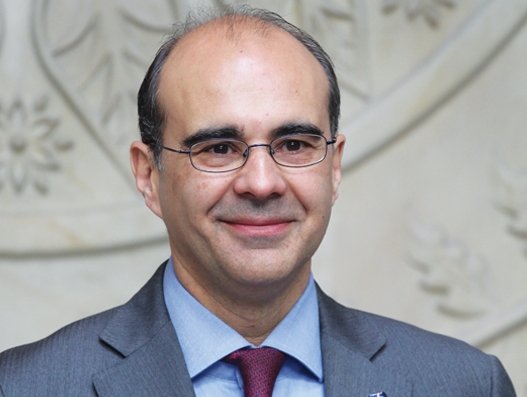
FROM MAGAZINE: Brussels Airlines bets big on India
<p style="text-align: justify;">Brussels Airlines launched its service from Belgian capital to Mumbai last month, its first flight to Asia and the launch is a part of Lufthansa group's strategy to expand its business in India. Lufthansa took control of Brussels Airlines last December. The Mumbai-Brussels route was served by Jet Airways till last March and […]

Brussels Airlines launched its service from Belgian capital to Mumbai last month, its first flight to Asia and the launch is a part of Lufthansa group's strategy to expand its business in India. Lufthansa took control of Brussels Airlines last December. The Mumbai-Brussels route was served by Jet Airways till last March and Brussels was even the European gateway for the Indian airline. But Jet Airways pulled out of the route as it found it to be unviable. Bernard Gustin, Chief Executive Officer, Brussels Airlines, who was in India along with a Belgian trade delegation led by the Secretary of State for Foreign Trade Pieter De Crem, is highly optimistic about success in India. Gustin speaks to Reji John about the initial response to the flight launched and the importance of cargo in the overall business strategy of the carrier. Edited Excerpts.
What are your thoughts on the direct flight between Brussels and Mumbai?
Belgium and India are very strong trading partners. It is interesting to see that within the European Union we are a key trading partner with India. So there are very strong economic links between the two countries and there is market for both passenger and cargo movements.
What is your evaluation of the direct flights that is operations for close to a month?
I’m very satisfied with the start. It’s just four weeks in operation. It’s better to begin with a strong start. I know that not all the processes are in place yet to allow us to have a full-fledged operation. On the cargo side we are yet to start to spread our wings. I was expecting a softer start. The average load factor for the first four weeks has been around 75 percent and that to me is very good and we are happy about it.
Do you intend to increase the frequency to Mumbai and add more destinations in India?
Success calls for success and all depends on results. If our results are positive, so far they are positive, we will consider. But it’s too early to take a judgment now and we should learn to walk before running but it’s clear that the trend remains as it is. We have room for a daily product and later on for further development in India knowing that we extend our long haul network substantially. Lately with the US and Africa, we shouldn’t forget these two regions as well because it’s always a question of equilibrium. If we add some US destinations it helps also the Indian traffic. So it’s always important to have the right balance.
How important is cargo in your overall business strategy?
The cargo category is completely integrated into the success of our long haul strategy since the start of the time. The cargo component is extremely important to us and it is completely integrated into the overall strategy. We don’t have any ambition to go for full freighter service but when we do our business case we really consider both ends and we have really considered both markets. We see ourselves as a carrier that moves people and goods. Do not like to see ourselves as a passenger airline doing a little bit of cargo on the side.
What is your consideration of African destinations in your network?
You can have a product which is loaded in India but within 24 hours it could be in Africa and vice versa. That is what we are able to offer on our network connecting India with African destinations. For instance India produces lot of medicines and they are exported to African countries. We believe that there is a lot of links that the Brussels Airlines and Brussels Airport have developed to enhance this business. Pharmaceutical is a sector in which, on the cargo side, we can do a lot together. Not to forget another key sector – the diamond industry. Therefore it means that we really see a business on cargo between India and rest of the world.
What is your value proposition to your cargo customers particularly at a time when yields are on the decline?
We are not full freight carrier so that allows us to have a balance between the passenger and the cargo. However, I think on the cargo side we need to be competitive. We can also differentiate ourselves on two axis: the first one by the quality of the product we offer. We propose products especially for fresh produce transport. The connection is perfect and so with all those perishable foods and so especially in India and Africa we have developed dedicated business which might be less yield-sensitive so we are going to focus on niche products like temperature control cargo.

